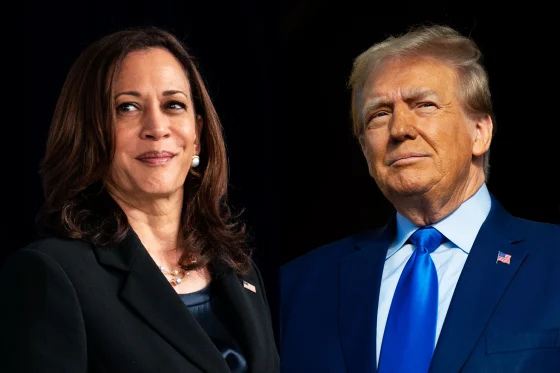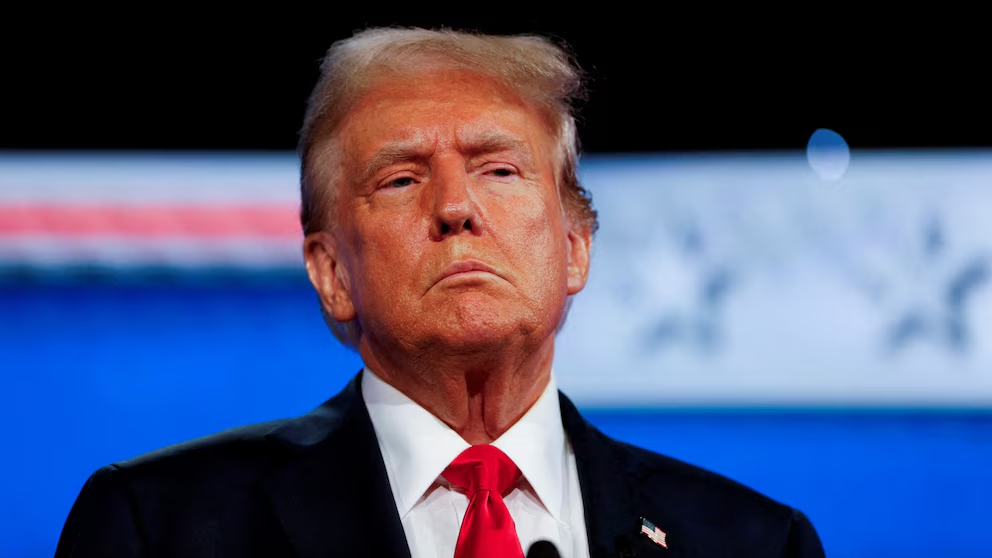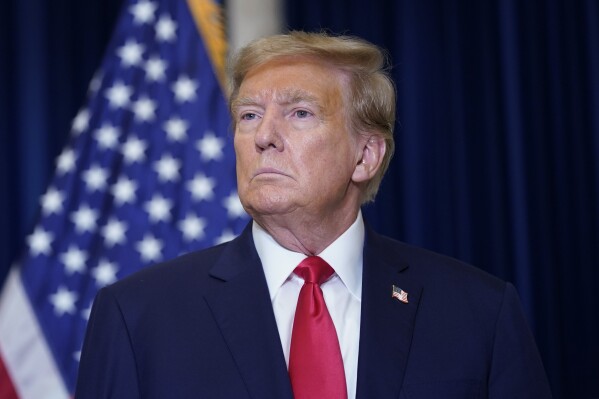As the 2024 U.S. presidential election approaches, Republican candidate Donald Trump has already laid the groundwork for a potential post-election dispute. Trump, known for his contentious rejection of the 2020 election results, has signaled that he may not accept the outcome of the November 5 election if he does not win, citing concerns of widespread voter fraud. The possibility of such a scenario could further deepen the political divisions in a nation already grappling with internal strife.

Trump’s Election Concerns and Rhetoric
At a September rally in Michigan, Trump told his supporters, “If I lose, I’ll tell you what, it’s possible. Because they cheat. That’s the only way we’re gonna lose, because they cheat.” These remarks were echoed by many of his allies, who have been preparing for the possibility of contested election results for months. Trump’s pattern of making such claims has stirred significant concern among both political analysts and election law experts, who worry about the potential destabilizing effects on the U.S. democratic process.
Trump’s rhetoric is reminiscent of the actions he took following his 2020 loss to President Joe Biden. After Biden was declared the winner, Trump and his allies launched a series of legal challenges that sought to overturn the results, including dozens of lawsuits that ultimately failed to alter the outcome. His campaign also made unprecedented efforts to pressure state officials, notably in Georgia, to find additional votes in his favor. When those efforts failed, the violent January 6, 2021, Capitol riot occurred, where pro-Trump extremists stormed the U.S. Capitol in an attempt to prevent Congress from certifying Biden’s victory.

The Lack of Presidential Levers
One key difference between the 2024 election and the 2020 contest is that Trump no longer holds the levers of presidential power. This means that even if he contests the election results, he does not have the same authority or influence over federal agencies or officials that he had during his time in office. Moreover, new state and federal election laws have been put in place since 2020, making it harder to overturn results or influence the certification process.
Nonetheless, Trump’s refusal to accept a potential defeat is expected to create significant political instability, and his actions could set the stage for yet another round of legal challenges and attempts to delay the certification of the results. These efforts could have wide-ranging consequences, particularly in the battleground states that will decide the election.

A Preemptive Strategy
In anticipation of a potential loss, Trump and his campaign have been laying the groundwork for a post-election legal battle. For months, Trump and his allies have raised concerns about the integrity of the election system. In particular, they have filed numerous lawsuits in key battleground states, often raising unfounded allegations about voter fraud and the involvement of non-citizens in the voting process.
This preemptive strategy includes accusations that mail-in voting and early voting could be manipulated to favor the Democratic candidate, Vice President Kamala Harris. Trump has also made it clear that he will not hesitate to contest the results if they do not go his way. His campaign spokeswoman, Karoline Leavitt, stated, “President Trump has been very clear that we must have a free and fair election,” but that statement does little to allay concerns that Trump may seek to undermine the democratic process if he loses.

Battleground States and Lawsuits
The majority of the lawsuits being filed by the Trump campaign are occurring in the battleground states that will play a pivotal role in deciding the 2024 election outcome. These include states like Pennsylvania, Michigan, Wisconsin, Arizona, and Georgia, where Trump narrowly lost in 2020 and where the election results will be closely contested this time around.
Trump and his allies are particularly focused on targeting the election procedures in these states, claiming without evidence that illegal activities, such as the use of mail-in ballots by non-citizens, will be widespread. The filings in these battleground states appear to be aimed at sowing doubt about the legitimacy of the election results long before the ballots are counted.
Additionally, both parties are planning to deploy thousands of poll watchers to monitor voting and vote counting processes, with a mandate to report any irregularities they witness. Some voting rights activists have raised concerns that Republican poll watchers may act disruptively, but the Republican Party insists that their volunteers are trained to remain within the law.

Delays in Certification and Election Challenges
One of the strategies that Trump and his allies may use is to delay the certification of election results, especially in close states. State certification is the process by which election officials finalize the results of an election, confirming the official tally of votes. In some states, this process has become a point of contention in recent elections, and Trump’s allies could attempt to delay certification by claiming fraud or other irregularities.
Legal experts have noted that state laws in many battleground states are clear: local election officials do not have the authority to overturn or disregard ballots without clear, verifiable evidence. Despite this, the potential for Trump’s allies to challenge the certification process could cause significant confusion, particularly in states with narrow margins of victory.
One state that has raised concerns is Georgia, where recent changes to the state election board have granted unprecedented authority to local officials to conduct investigations into election results. Some Democratic activists worry that this change could provide an opening for bad-faith actors to contest the outcome of the vote count. However, a Georgia judge recently ruled that local officials must certify the election results and do not have the discretion to delay that process.
The Role of Congress in Certification
Despite the potential for legal challenges to slow the certification of results, Congress remains the final arbiter in the electoral process. Once each state submits its certified results, electors from the Electoral College will cast their votes in December. These votes are then submitted to Congress for final certification in January.
A key change made in the aftermath of the 2020 election was the passage of a reform law aimed at making it harder for candidates to mount successful challenges to the Electoral College results. Under the new law, the vice president has no authority to delay the certification or reject a state’s electoral results, as Trump had previously urged Vice President Mike Pence to do in 2020.
Additionally, for an objection to a state’s electoral count to be raised, one-fifth of the members of each chamber of Congress must agree to it. After that, it would take a majority vote in each chamber for the objection to be upheld. This significantly narrows the path for Trump or any other candidate to contest the results in Congress.

Civil Unrest and Public Reaction
One of the greatest concerns regarding Trump’s potential refusal to accept the election results is the possibility of civil unrest. Following the January 6 Capitol riot, many Americans are anxious about the potential for another wave of violence, particularly if Trump and his allies continue to propagate claims of widespread fraud. Experts who monitor right-wing extremist groups say they are less concerned about a violent response from these groups than they are about threats to election workers and public officials.
The January 6 attack on the U.S. Capitol resulted in the deaths of five individuals, injuries to many others, and the conviction of hundreds of rioters involved in the assault. Many of those convicted were sentenced to prison time, serving as a powerful deterrent to others who might be tempted to take similar actions should Trump continue to contest the results.
The Bigger Picture
However, concerns about potential disruptions during vote counting and certification are still valid. Election workers and local officials may be the targets of harassment and threats, as was the case in several states following the 2020 election. These workers are often at the forefront of ensuring that the election is conducted fairly and accurately, and any attempts to intimidate them could undermine public trust in the democratic process.
Trump’s strategy of questioning election results, even before the votes are counted, has deepened partisan divisions in the U.S. and raised concerns about the future of American democracy. Whether or not he wins or loses the 2024 election, it is clear that the country faces significant challenges ahead in terms of restoring faith in the electoral process.
Should Trump contest the results and continue to propagate claims of fraud without evidence, the result could be prolonged legal battles, delayed certification processes, and potentially even more political and civil unrest. In an already polarized environment, the 2024 election will likely be a test not only of the nation’s electoral system but of the resilience of its democratic institutions.
With election experts watching closely, the coming months will undoubtedly be critical in determining how the U.S. navigates these challenges, and whether the election will proceed peacefully and with confidence in the legitimacy of the results.




